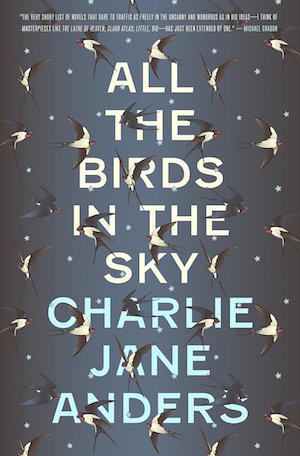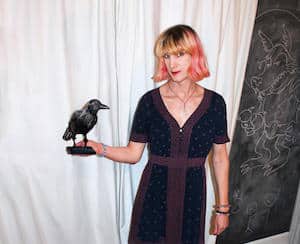The Book Doctors are always drawn to books that break new ground. We love it when someone takes an established genre and tweaks it, twists it, then turns it on its ear. Kate Forest is making a career doing just that. She writes about romance, but she likes to make her characters have some kind of differently-able challenge. So when we saw that her new book, In Tune Out of Sync, is out, we wanted to get the skinny on what brave new world she’ll be taking us to this time.
Read this interview on the HuffPost.

The Book Doctors: What have you learned from writing your previous books that you could apply to writing In Tune Out of Sync?
Kate Forest: Everything and nothing. I feel as though I will never stop learning how to write a better book. I am constantly reading, going to workshops, and asking people for feedback. I strive to remain open in improving my craft. That said, I seem destined to write first drafts with unlikeable heroines and secondary characters that steal the scene. At least I know those mistakes are coming.
TBD: What is In Tune Out of Sync about?
KF: At the core, it’s about “inspiration porn.” This is the idea that typical bodied people watch videos or read stories about people with challenges doing everyday things and feel “inspired to do better.” As if they were to ask, “What’s my excuse?” People with disabilities are not there to inspire the rest of us. The two main characters in this book struggle with how to overcome, or use, their differences. Yes, they compete for the same jobs, but their real conflict stems from how they view themselves and how the world views them.

TBD: Why did you choose violin and dyslexia as such main elements of your book?
KF: I had a learning disorder when I was a kid. I couldn’t read until I was about 10. I didn’t have dyslexia, but I knew the pain that simply being in school could elicit. As a school social worker, I have worked with kids with dyslexia and wanted to bring those stories to a romance novel.
Violin? I chose something that seems counterintuitive to dyslexia and Tourette’s Syndrome. The violin, to me, seems delicate, requiring speed reading of music and total control of one’s body. Now put someone who doesn’t always control his body, and someone who can’t read quickly, in an orchestra. It was perfect for building tension.
An important thing to note about this book is that it will be available as an audio book. It’s important to make it accessible to anyone interested in dyslexia stories.
TBD: How did you get into the mindset of someone with Tourette’s Syndrome?
KF: I watched many documentaries. I interviewed people. I read. Tourette’s Syndrome is the one issue I have written about that I hadn’t had much experience with. I needed to be accurate and sensitive. I wanted my language to reflect how people in the TS community talk. Two resources I recommend are Jess Thom’s Touretteshero site and An Unlikely Strength by Larry Barber.
TBD: How did you manage to capture the world of the New York Philharmonic and high-end classical music? Did you do lots of research?
KF: Oh, I had to do tons of research. My music education ended in 5th grade with “Hot Cross Buns” on the recorder. I love music, and admire people who make it. Luckily, I know professional classical musicians, and they were kind enough to read drafts of the story and answer my insane questions.
TBD: How do you devise plots for your romances?
KF: I don’t start with plots. Romance stories hinge on the characters. For me, the characters’ inner conflicts are what drive the story. I begin by developing the characters. What do they want? Why do they want it? And what is standing in their way? Layer on that, the two main characters need to have goals that are in direct conflict with each other. There has to be no possible way these two people can end up together. And then, they grow and change, and presto, they are together—happily ever after.
TBD: How do you not fall into cliché as you write books that are filled with so many rules?
KF: The only real rule to genre fiction is that there is an emotionally satisfying ending. I prefer genre fiction to literary fiction for this reason. The genre fiction author makes a promise to the reader on the first page: You will be entertained, we will go on a journey, and everything will be answered in the end. Whether you’re fighting an alien invasion, rooting out a murderer, or watching two people find love, there will be a solution. So clichés? There’s no reason to rely on them when there are no limits.
TBD: Do people who are differently abled ever contact you?
KF: These are my best reviews and letters. I get emails from parents of kids on the spectrum and people with different challenges who say my book portrayed the characters in a sensitive and accurate way. But I’m also happy when someone reads the story and says, “I learned something about this issue.” The more we see fictional characters with disabilities in typical situations, the more we will accept real life people with disabilities in all areas.
TBD: Does your writing fall into any single category? Do you try to fit into the romance genre?
KF: Some people have told me that my books aren’t strictly romance, since they tackle other issues. But the truth is that my books fit squarely in the romance genre. The Romance Writers of America defines romance as stories that “contain a central love story and the resolution of the romance must be emotionally satisfying and optimistic.” All of my books easily meet these criteria. There should be no reason that a story that portrays characters with disabilities should be outside of this genre.
TBD: What new advice do you have for writers?
KF: I’d ask what your goal is as a writer. If you’re writing for pleasure, or you have a single story you want to share, then have fun. Work at your own pace. Take some writing classes. Find a group of like-minded writers. If you have a goal of being a commercial writer, you must join a professional organization of writers. There’s one for each type of book. Writers can’t write alone. I have a team of critique partners who send back angry red comments, slashing entire scenes. I have a different team of beta readers (some writers, some for research questions, some who just like to read). Then I have a technical team of cover designer, formatter, and copy editor. I run a small business, and spend just as much time networking and marketing as I do writing. My grandmother was in a nursing home in her last days, after a lifetime of hard work. Her husband of over 70 years had just died. She said, “Life is not for sissies.” And all I can say is, “Writing is not for sissies either.”
[themify_hr color=”light-gray” ]
Author Kate Forest has worked in a psychiatric hospital, as a dating coach, and spent a disastrous summer selling above-ground swimming pools. But it was her over twenty-year career as a social worker that compelled her to write love stories with characters you don’t typically get to read about. She lives in Philadelphia with her husband, two kids, and a fierce corgi. Visit her at www.kateforestbooks.com.



